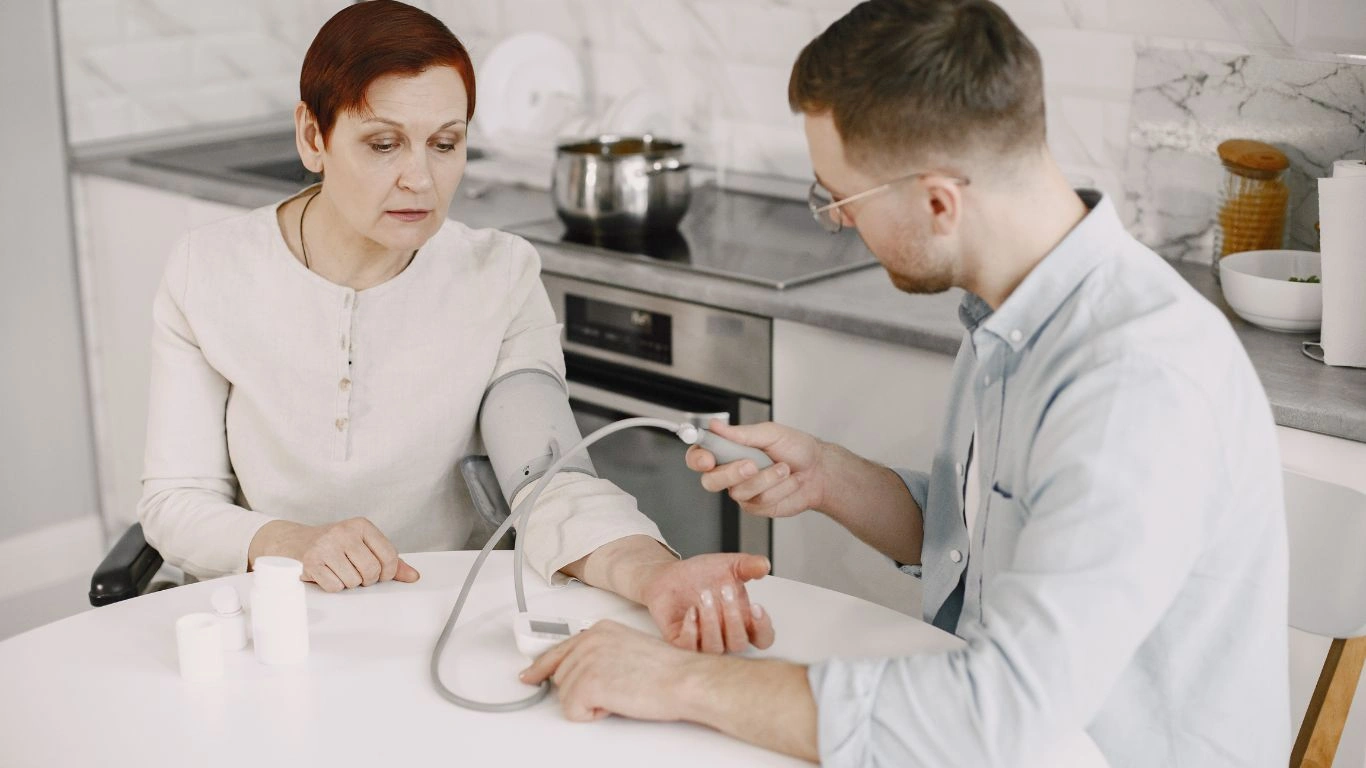Exploring the Link: Hypertension and Vitamin B12 Benefits
Ever wondered if vitamin B12 could play a role in managing hypertension? Let’s dive into the science, explore its benefits, and figure out how this nutrient could fit into your wellness routine!
What Is Hypertension?
Hypertension, or high blood pressure, is when your blood consistently pushes too hard against your artery walls. Over time, this can damage your heart, kidneys, and brain—not to mention raise your risk for heart attacks or strokes. It’s often called the “silent killer” because many people don’t even realize they have it until something goes wrong. Lifestyle factors like diet, exercise, stress, and sleep all play a part. But have you ever thought about how specific nutrients, like vitamin B12, might factor into the equation? 
Vitamin B12: What’s the Hype?
Vitamin B12 is like that underappreciated friend who does all the behind-the-scenes work. It’s essential for: – Making red blood cells. – Keeping your nerve cells healthy. – Synthesizing DNA. Without enough B12, your body struggles. You might feel tired, foggy-headed, or even develop conditions like anemia. But how does this tie into hypertension?
Can Vitamin B12 Help with Hypertension?
Let’s get into the nitty-gritty. While B12 isn’t a magic bullet for high blood pressure, here are some ways it might help:
1. Lowering Homocysteine Levels
High levels of homocysteine (an amino acid in your blood) are linked to cardiovascular issues, including hypertension. Vitamin B12, along with folate and B6, helps break down homocysteine, potentially reducing its harmful effects.
2. Supporting Red Blood Cell Production
B12 is crucial for making red blood cells, which carry oxygen throughout your body. If your body isn’t oxygenating properly, your heart has to pump harder—potentially leading to higher blood pressure.
3. Nervous System Health
Your nervous system and blood pressure are closely linked. B12 supports the proper functioning of nerves, which may indirectly help regulate blood pressure levels. 
Top Sources of Vitamin B12
If you’re thinking, “Alright, I need more B12!” here’s where you can get it: – Animal-based foods: Beef liver, clams, fish (like salmon and trout), eggs, and dairy products are excellent sources. – Fortified foods: Many cereals and plant-based milk options are enriched with B12. – Supplements: If you’re vegan, vegetarian, or have trouble absorbing B12, talk to your doctor about a supplement.
Who’s at Risk for Vitamin B12 Deficiency?
Not everyone’s getting enough B12. If you fall into any of these categories, you might need to pay extra attention: – Older adults: Absorption can decrease with age. – Vegans and vegetarians: B12 is mainly found in animal products. – People with absorption issues: Conditions like Crohn’s disease, celiac disease, or certain surgeries can interfere with absorption.
How to Incorporate Vitamin B12 into Your Hypertension Plan
Managing hypertension takes a multifaceted approach, and adding B12 to your plan might help. Here’s how:
1. Talk to Your Doctor
Always consult your healthcare provider before making changes. They might recommend a blood test to check your B12 levels.
2. Prioritize a Balanced Diet
Include foods rich in B12 alongside other heart-friendly choices like fruits, veggies, whole grains, and healthy fats.
3. Consider Supplements
If you’re deficient, a B12 supplement could be a game-changer.
4. Pair with Other Healthy Habits
No single nutrient is a cure-all. Keep up with regular exercise, stress management, and routine blood pressure monitoring. 
Final Thoughts
Vitamin B12 might not be a silver bullet for hypertension, but it can play a supportive role in heart health and overall well-being. By making mindful dietary choices and working closely with your doctor, you can build a comprehensive plan to keep your blood pressure in check.
Appendices
References
- National Heart, Lung, and Blood Institute. (2024). “What Is Hypertension?”
- Harvard Health Publishing. (2023). “Vitamin B12 and Its Role in Health.”
- Mayo Clinic. (2024). “Nutritional Strategies for Blood Pressure Management.”
- American Heart Association. (2023). “Understanding Homocysteine and Heart Health.”
- National Institutes of Health (NIH). (2024). “Dietary Supplement Fact Sheet: Vitamin B12.”
FAQs
- Can vitamin B12 alone lower my blood pressure? While it’s not a direct treatment, it may help manage factors contributing to hypertension, like homocysteine levels. Always pair it with other healthy habits.
- What’s the recommended daily intake of vitamin B12? For most adults, it’s 2.4 micrograms per day. Pregnant or breastfeeding individuals may need more.
- Can I get too much B12? B12 is water-soluble, so excess amounts are usually excreted. However, always follow your doctor’s recommendations.
- Are there side effects to taking B12 supplements? Side effects are rare but can include mild diarrhea, itching, or rash in some people.
- Can children take B12 supplements? Yes, but the dosage will differ. Consult your pediatrician for guidance.
Disclaimer: This article is for informational purposes only. It’s not a substitute for professional medical advice. Always consult a healthcare provider for personalized recommendations.

Dr. Gwenna Aazee is a board-certified Internal Medicine Physician with a special focus on hypertension management, chronic disease prevention, and patient education. With years of experience in both clinical practice and medical writing, she’s passionate about turning evidence-based medicine into accessible, actionable advice. Through her work at Healthusias.com, Dr. Aazee empowers readers to take charge of their health with confidence and clarity. Off the clock, she enjoys deep dives into nutrition research, long walks with her rescue pup, and simplifying medical jargon one article at a time.







